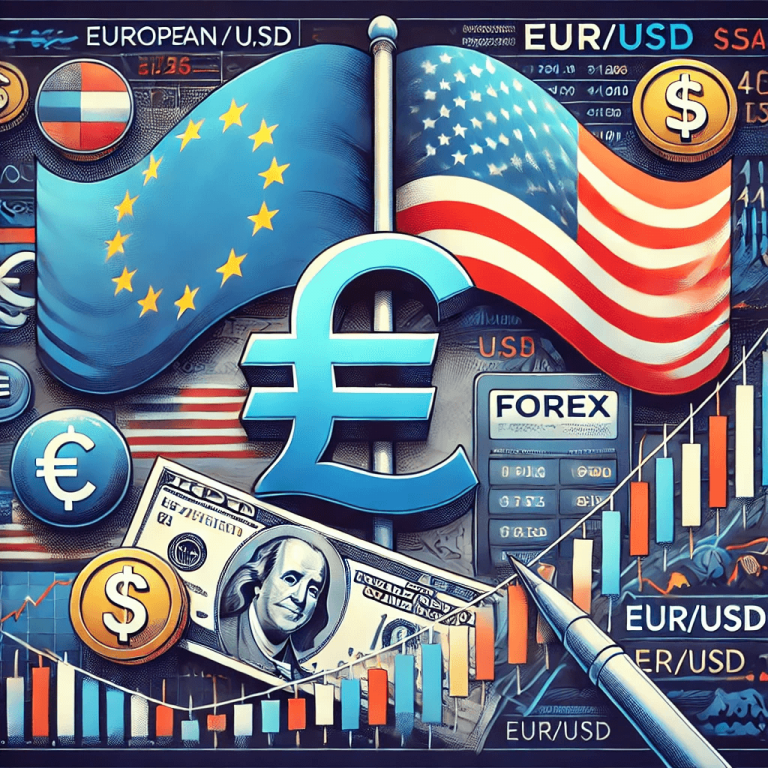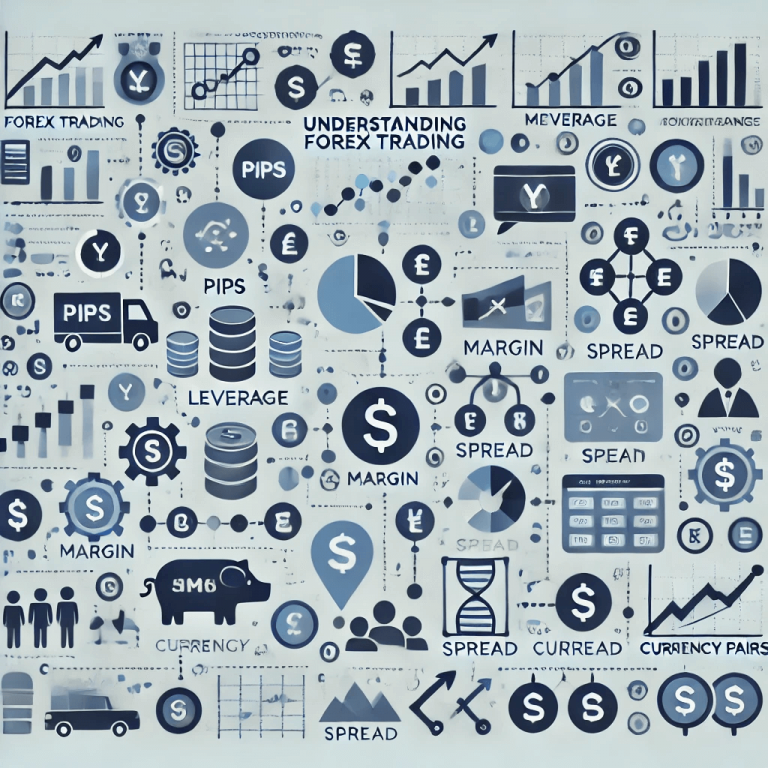Psychology plays a crucial role in Forex trading. Many investors focus solely on technical and fundamental analysis, forgetting that it is often emotions that determine decision-making. Fear, greed, or frustration can lead to impulsive moves that weaken the effectiveness of an investment strategy. That is why it is so important to learn how to control stress and emotions during trading.
Why do emotions have such a strong impact on trading?
Table of Contents
- Why do emotions have such a strong impact on trading?
- Fear and Its Consequences
- Greed as the Enemy of Consistent Trading
- FOMO (Fear of Missing Out) and Its Effects
- The Most Common Psychological Pitfalls in Trading
- Overtrading – When Too Much Activity Harms?
- The Importance of a Trading Plan
- When to Take a Break from Trading?
Key Information
- Emotions have a decisive impact on investment decisions in the Forex market.
- Fear and greed can result in impulsive actions and losses.
- It is important to implement strategies that minimize the influence of emotions, such as automation of decisions and strict adherence to a trading plan.
- Relaxation techniques and physical activity help in building a consistent trading routine.
- Regular performance analysis and maintaining a trading journal help control emotions.
Why do emotions have such a strong impact on trading?
Decisions made in the Forex market are often the result of emotional responses. An investor’s psychology can be more significant than the investment plan itself, because even the best strategy will not yield the expected results if executed under panic or overconfidence. International statistics indicate that as many as 70% of traders believe that emotions play a key role in their success (Source: IMF, https://www.imf.org/en/Data).
Fear and Its Consequences
The fear of loss is one of the most common reasons for poor decisions in trading. Traders often close positions too early, fearing further losses, even when their strategy indicates a potential trend reversal. Another negative effect is “analysis paralysis”, which is the avoidance of opening positions due to the fear of potential failure. As a result, the investor misses opportunities that could have been profitable.
Examples of errors stemming from irrational fear include, among others:
| Error | Description |
|---|---|
| Closing positions too quickly | A reaction to a temporary drop in price without analyzing the trend. |
| Avoiding market entry | Not making a decision despite favorable signals. |
| Failure to follow the trading plan | Acting under the influence of emotions and the fear of loss. |
Greed as the Enemy of Consistent Trading
Greed can be just as dangerous as fear. Overconfidence leads to overleveraging, that is, opening positions that are too large in relation to one’s capital, which significantly increases the risk of losing funds. The “one more trade” syndrome manifests itself in the inability to end trading for the day or week, often resulting in losses due to fatigue and lack of analysis. The key element is maintaining discipline and adhering to capital management rules.
FOMO (Fear of Missing Out) and Its Effects
The pressure to participate in dynamic market moves often leads to impulsive decisions. Traders fear missing out on a “sure” opportunity, causing them to enter the market hastily without risk analysis. FOMO frequently results in buying assets at inflated prices or selling at the worst possible moment. Additionally, recent international studies have shown an increase in the risk of loss by 12% due to emotional transactions (Source: World Bank, https://www.worldbank.org).
Historical examples of situations where FOMO caused losses include:
- The Dot-com Bubble (90s) – investors massively bought technology stocks without fundamental analysis;
- The Bitcoin surge in 2017 – many investors bought at the peak, followed by a sharp decline.
Dealing with FOMO in daily trading requires adherence to a strategy and avoiding emotional decisions, analyzing potential losses before every market entry, and accepting that not every opportunity is worth the risk.
What Are the Most Common Psychological Pitfalls in Trading?
Trading is not only about technique but, above all, about psychology. Investors often face internal challenges that affect their decisions and effectiveness. Emotions such as fear, greed, or euphoria can dominate a rational approach to investing, leading to costly mistakes.
Overtrading – When Too Much Activity Harms?
Overtrading is one of the most frequent mistakes made by traders. It arises from a lack of strategy, the desire to quickly recover losses, or an addiction to the emotions associated with trading. An excessive number of transactions leads to high commission costs, mental fatigue, and a decline in the quality of decision-making. Remember, consistency and calm are the keys to success.
Consequences of overtrading:
| Consequence | Description |
|---|---|
| Capital Loss | Frequent, unplanned transactions increase the risk of losses. |
| Mental Overload | Stress and fatigue reduce the quality of market analysis. |
| Impulsive Decisions | Increased vulnerability to emotional reactions. |
How to limit overtrading?
- Implement a daily transaction limit;
- Strictly adhere to the investment strategy;
- Take breaks and control emotions during trading.
The Importance of a Trading Plan
Effective trading requires a clearly defined plan that allows for methodical and consistent decision-making. A trading plan should include precise rules regarding market entry and exit points as well as a risk management strategy. This approach eliminates the need to deliberate over every decision on the fly, which reduces the risk of impulsive actions.
However, merely having a plan is not enough – it is important to follow it consistently. Many people succumb to emotions and change their strategies in response to short-term market fluctuations, leading to chaos and a lack of cohesion in their actions. To prevent this, it is helpful to develop the habit of regularly analyzing your transactions and avoiding deviations from the established rules. Keeping a trading journal can assist in identifying moments when emotions begin to take control, making it easier to eliminate them in the future.
As international expert Dr. John Smith noted, “controlling emotions is the foundation of effective trading and the key to long-term success” (Source: Reuters, https://www.reuters.com).
When to Take a Break from Trading?
Sometimes the best decision you can make is… to refrain from making decisions. Trading requires not only analytical thinking but also the right mental state. If you notice that emotions begin to affect your trades – frustration after a series of losses, impatience while waiting for the right market entry, or compulsively taking trades to “make up” – it is a sign that it might be time to step away from the charts for a while.
Taking a break allows you to regain mental balance and a fresh perspective on the market situation. It could last a few hours, a few days, or even weeks – depending on the level of fatigue and stress.

Emotions in trading are inevitable, but they can be controlled through the appropriate strategies. Automating decisions helps to limit the influence of impulses, and a well-constructed trading plan ensures stability and order in decision-making. Equally important is the ability to recognize the moments when it is worth taking a break to avoid further errors resulting from excessive emotional involvement. Such conscious emotion management can translate into a more efficient and calm investing process.
Stress Management Strategies in Trading
Trading is not just about market analysis, but also about managing emotions. Stress can significantly impact decision-making, which is why the ability to cope with it is essential for achieving success.
Building a Consistent Trading Routine
It is important to establish a fixed daily plan that helps you maintain focus and avoid making hasty decisions. The schedule should include regular working hours, time for market analysis, and breaks that allow you to maintain balance and steer clear of an emotional approach to transactions.
A journal is an effective tool that helps track progress, analyze mistakes, and control emotions. Recording your trades, emotional reactions, and outcomes provides an opportunity to learn and improve your strategy, which in turn reduces the risk of making poor decisions under stress.
Successful traders often develop habits that help them remain calm. Regular performance analysis, monitoring emotions, and maintaining a healthy work-rest balance enable more thoughtful decisions and help avoid stress caused by excessive pressure.
Techniques for Controlling Stress and Emotions
Meditation and mindfulness are techniques that help increase concentration and reduce stress. By practicing them regularly, traders can better control their emotions, remain calm, and make decisions in a more balanced way, even during stressful times.

Similarly, simple breathing techniques, such as deep inhalations, help in relaxation and reducing tension. Using them before and after a trading session can help calm the nervous system, reduce stress, and improve market focus.
Physical activity is also an excellent way to combat stress. Regular exercise promotes the production of endorphins, which improve your mood and help maintain a healthy mental balance. In addition, a proper diet and adequate sleep are equally important for achieving emotional stability in trading.
Setting Realistic Expectations and Goals
Setting overly ambitious goals can lead to a sense of failure when they are not achieved. Such expectations often result in frustration and stress, which affect market decisions. It is important that goals are realistic and tailored to individual capabilities. Good goals are those that are measurable and attainable over the long term. It is advisable to focus on improving skills, managing risk, and refining your strategy, rather than solely on financial results. This approach provides a sense of control and helps avoid stress linked to unrealistic expectations.
Instead of concentrating exclusively on financial outcomes, it is better to focus on the process. Concentrating on skill development, market analysis, and making rational decisions in the long run yields better results. This approach helps maintain motivation and reduces the pressure stemming from short-term expectations.
How to Avoid Emotional Trading?
Emotions are one of the biggest enemies of effective trading. Fear, greed, or frustration can lead to hasty decisions that often end in losses. To increase your chances of success and minimize the influence of emotions, it is worthwhile to employ specific strategies and tools that support the decision-making process.
Automation of Investment Decisions
One of the best ways to eliminate emotional reactions is to use tools that make decisions for the trader. Stop-Loss and Take-Profit orders allow you to determine in advance when to close a position, thereby limiting the risk of impulsive actions during sudden market moves. They help avoid situations where emotions – whether it is the fear of loss or overconfidence – lead to prolonging transactions unnecessarily.
An alternative to manual trading is algorithmic systems that execute transactions according to predetermined parameters. Such solutions eliminate the trader’s psychological influence on decision-making, which is particularly useful during periods of high market volatility. Even if the investor does not use fully automated systems, they can develop a mechanical strategy based on fixed rules for opening and closing positions. This makes the decision-making process more objective and less prone to sudden mood swings.
The Importance of a Trading Plan
Effective trading requires a clearly defined plan that allows for methodical and consistent decision-making. A trading plan should include precise rules regarding entry and exit points as well as a risk management strategy. This approach eliminates the need to deliberate over every decision on the fly, thereby reducing the risk of impulsive actions.
However, merely having a plan is not enough – it is crucial to implement it consistently. Many people give in to emotions and change their strategies in response to short-term market fluctuations, leading to chaos and inconsistency in their actions. To prevent this, it is advisable to cultivate the habit of regularly analyzing your transactions and avoiding deviations from the established rules. Keeping a trading journal can help identify moments when emotions begin to take over, making it easier to eliminate them in the future.
When to take a break from trading? Sometimes, the best decision you can make is… to refrain from making decisions. Trading requires not only analytical thinking but also the proper mental state. If you notice that emotions are starting to influence your trades – frustration after a series of losses, impatience waiting for the right moment to enter the market, or compulsively entering trades to “make up” – it is a sign that you should step away from the charts for a while.




